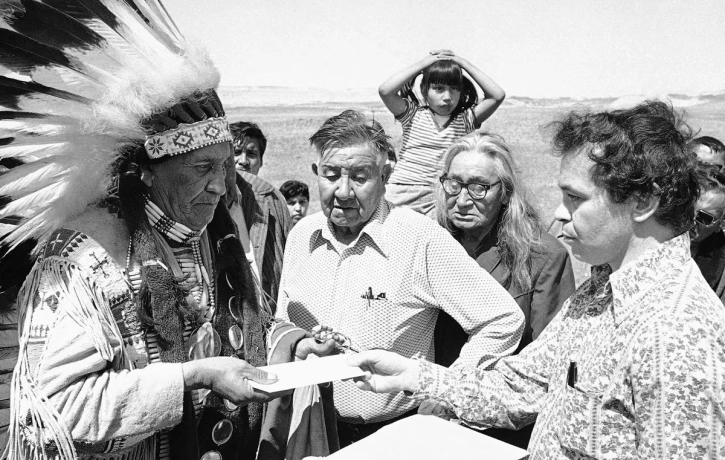Introduction
Hank Adams, hunting and fishing rights were secured by Native American rights campaigner Henry Lyle Adams (May 16, 1943 – December 21, 2020). His role in the landmark Boldt Decision (1974), upholding tribal fishing rights, was crucial. He was born in Montana and currently resides in Washington. Adams was involved in important protests such as the Department of Interior occupation in 1972 and the Wounded Knee standoff in 1973 as part of the Native American Movement. For his work, he was given the Native American Visionary Award in 2006.
Early life and education
On May 16, 1943, Henry Lyle Adams was born in Montana’s Fort Peck Indian Reservation to an Assiniboine family. Louis and Jessie Adams, his parents, were rodeo riders who got divorced when he was a small child. Following World War II, his family relocated to Taholah, Washington, on the Quinault Indian Reservation. Adams was a standout student in high school and spent two years at the University of Washington before moving to the Quinault Reservation to deal with the suicide crisis. In 1963, he started his lifetime advocacy for Native American treaty rights alongside activist Billy Frank Jr.
Activism
National Indian Youth Council member Henry Lyle Adams, born May 16, 1943, was an activist for Native American rights. Protests that he spearheaded included a significant 1964 Olympia, Washington demonstration that featured Marlon Brando among its participants. A member of the Army from 1965 to 1967, Adams campaigned for fishing rights through “fish-in” protests. He was arrested several times while leading the Survival of Native American Association in 1968 and fighting for the rights of fishermen. He actively participated in the Poor People’s Campaign and his 1971 suggestions on the relationship between the federal government and Indian groups had an impact on the Twenty Point Proposal of the 1972 Trail of Broken Treaties.
Boldt Decision
Serving as a lay attorney for tribal fisherman in the United States v. Washington case, often known as the Boldt Decision (1974), Henry Lyle Adams played a significant role. The right of Native Americans to fish in their ancestral lands was upheld by this decision. In order to obtain these rights, Adams collaborated closely with Billy Frank Jr. and advocated in Washington, D.C. The ruling gave groups the authority to work with the state of Washington to jointly manage fishing resources. Adams never wavered in his commitment to the cause of fishing rights.
Trail of Broken Treaties
In 1972, Henry Lyle Adams joined the Trail of Broken Treaties and became involved in the Native American Movement. The Twenty Points proposal for tribal sovereignty was written by him. Protesters took over the Bureau of Indian Affairs when the Nixon administration declined to meet with them. Adams’s efforts resulted in more tribal autonomy, pro-Native American legislation, and an advancement of Native American sovereignty.
Occupation of Main Interior Building
In the early 1970s, Henry Lyle Adams was a key figure in two significant Red Power demonstrations. He led the negotiations that resulted in the protesters’ amnesty during the Bureau of Indian Affairs occupation in 1972. Adams took part in the 1973 occupation of Wounded Knee as well. His actions fit into a lengthy history of Native American activism.
Wounded Knee incident
Hank Adams, AIM demonstrators spearheaded the 71-day Wounded Knee takeover of the Pine Ridge Indian Reservation in February 1973. Henry Lyle Adams acted as a go-between for President Nixon’s delegates and Lakota chief Frank Fools Crow, which was crucial to the occupation’s peaceful termination. His unseen work was important in keeping the situation from getting worse and in reaching a peaceful conclusion.
Documentary work
“As Long as the Rivers Run,” a documentary documenting treaty fishing disputes in the Pacific Northwest during the Fish Wars, was made by Henry Lyle Adams. Its depiction of violence against Native American women may have contributed to the Main Interior Building’s damage when it was shown to the building’s occupants in 1972. The charity Salmon Defense recently released the movie online after digitally remastering it.
Legacy
Renowned throughout the Native American community for his critical contribution to peaceful conflict resolution, Hank Adams was held in high regard. According to Vine Deloria Jr., he was among the most important individuals in contemporary Native American history. December 21, 2020, in Olympia, Washington, marked the passing of Adams, a Nisqually people member. On May 16, 2024, he received recognition in a Google Doodle.








